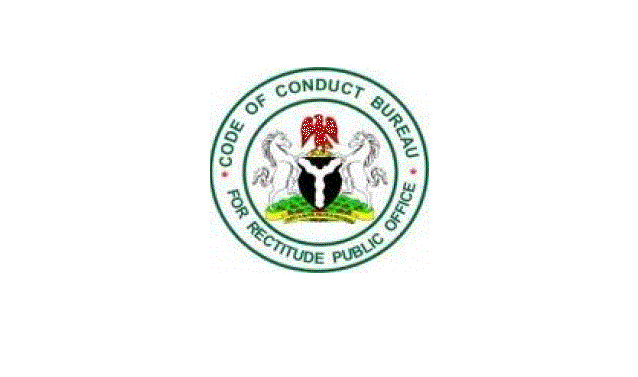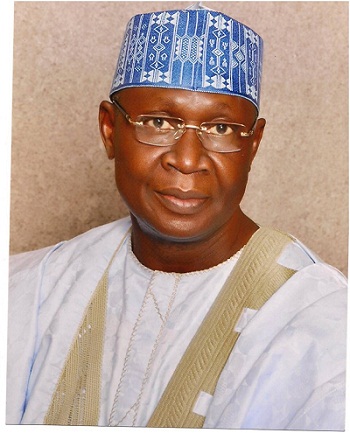 |
| Credits – Google |
The
CCB was established in Nigeria in 1979 during the Second Republic after 13
years of military rule by the founding fathers of the first post-military
constitution. The 1979 Constitution provided a list of Codes of Conduct for
public officers. In
essence, the CCB was established for the purpose of addressing issues relating
to the conduct of public officers during their tenure of holding office, also especially
to fight corruption in the public service.
CCB was established in Nigeria in 1979 during the Second Republic after 13
years of military rule by the founding fathers of the first post-military
constitution. The 1979 Constitution provided a list of Codes of Conduct for
public officers. In
essence, the CCB was established for the purpose of addressing issues relating
to the conduct of public officers during their tenure of holding office, also especially
to fight corruption in the public service.
The
Code of Conduct Bureau and Tribunal Act, Chapter 58 LFN 1990 gave the Bureau
the mandate to establish and maintain a high standard of public morality in the
conduct of government business and to ensure that the actions and behaviour of
public officers conform to the highest standards of public morality and
accountability. The Bureau’s constitutional mandate as provided for in
the 1999 Constitution is to:
Code of Conduct Bureau and Tribunal Act, Chapter 58 LFN 1990 gave the Bureau
the mandate to establish and maintain a high standard of public morality in the
conduct of government business and to ensure that the actions and behaviour of
public officers conform to the highest standards of public morality and
accountability. The Bureau’s constitutional mandate as provided for in
the 1999 Constitution is to:
- Receive declarations by public officers made under paragraph 12 of
part 1 of the Fifth Schedule to the 1999 constitution.
- Examine the declarations in accordance with the requirements of the
Code of Conduct or any law.
- Retain custody of such declarations and make them available for
inspection by any citizen of Nigeria on such terms and conditions as the
national assembly may prescribe.
- Ensure compliance with and, where appropriate, enforce the
provisions of the Code of Conduct or any law relating thereto.
- Receive complaints about non-compliance with or breach of the Code
of Conduct or any law in relation thereto, investigate the complaint and,
where appropriate, refer such matters to the Code of Conduct Tribunal.
- Appoint, promote, dismiss and exercise disciplinary control over
the staff of the Code of Conduct Bureau in accordance with the provisions
of an Act of the National Assembly enacted in that behalf.
- Carry out such other functions as may be conferred upon it by the
National Assembly.
The
Bureau according to the constitution has powers over the following public
officers:
Bureau according to the constitution has powers over the following public
officers:
1.
The President and the
Vice- President.
The President and the
Vice- President.
2.
Senate President and
Deputy Senate President
Senate President and
Deputy Senate President
3.
Speakers of the house and
Deputy Speaker of the House.
Speakers of the house and
Deputy Speaker of the House.
4.
Governors and Deputy-
Governors
Governors and Deputy-
Governors
5.
Chief Justice of Nigeria,
Justices of the Supreme Court, President and Justices of the Court of Appeal,
all other judicial officers and all staff of courts of law.
Chief Justice of Nigeria,
Justices of the Supreme Court, President and Justices of the Court of Appeal,
all other judicial officers and all staff of courts of law.
6.
A.G. of Federation and
each state.
A.G. of Federation and
each state.
7.
Ministers and
Commissioners of the Federation.
Ministers and
Commissioners of the Federation.
8.
Chief of Defence Staff,
Chief of Army Staff, Chief of Naval Staff, Chief of Air Staff and all numbers
of the armed force of the federation.
Chief of Defence Staff,
Chief of Army Staff, Chief of Naval Staff, Chief of Air Staff and all numbers
of the armed force of the federation.
9.
I. G of police, Deputy –
Inspector General of police and all members of the police.
I. G of police, Deputy –
Inspector General of police and all members of the police.
10.
Secretary of the
Government of the Federation, Head of Civil Service, Permanent Secretaries, D-G
and all other persons in the civil service.
Secretary of the
Government of the Federation, Head of Civil Service, Permanent Secretaries, D-G
and all other persons in the civil service.
11.
Ambassadors, High
Commissioners and officers of Nigerian missions abroad.
Ambassadors, High
Commissioners and officers of Nigerian missions abroad.
12.
Chairman, members and
staff of the code of conduct bureau and code of conduct tribunal.
Chairman, members and
staff of the code of conduct bureau and code of conduct tribunal.
13.
Chairman, members and
staff of local government councils.
Chairman, members and
staff of local government councils.
14.
Chairman and members of
the boards or other governing bodies and staff of statutory corporations and of
companies in which the Federal or State govt. has controlling interest.
Chairman and members of
the boards or other governing bodies and staff of statutory corporations and of
companies in which the Federal or State govt. has controlling interest.
15.
All staff of Universities,
Colleges and institutions owned and financed by the Federal or State Government
or local government councils.
All staff of Universities,
Colleges and institutions owned and financed by the Federal or State Government
or local government councils.
16.
Chairman, members and
staff of permanent commissions or councils appointed on full time basis.
Chairman, members and
staff of permanent commissions or councils appointed on full time basis.
The
Code of Conduct Tribunal has the power to improve the following punishments
including-
Code of Conduct Tribunal has the power to improve the following punishments
including-
a)
Vacation of office or seat
in any legislative house, as the case may be;
Vacation of office or seat
in any legislative house, as the case may be;
b)
Disqualification from
membership of a legislative house and from the holding of any public office for
a period not exceeding ten years; and
Disqualification from
membership of a legislative house and from the holding of any public office for
a period not exceeding ten years; and
c)
Seizure and forfeiture to
the state of any property acquired in abuse or corruption of office.
Seizure and forfeiture to
the state of any property acquired in abuse or corruption of office.
The
Code of Conduct Tribunal is established by Section 15(1) of the Code of Conduct
for Public Officers as contained in Part 1 of the 5th schedule of
the 1999 constitution of the Federal Republic of Nigeria and it consists of a Chairman
and two other persons.
Code of Conduct Tribunal is established by Section 15(1) of the Code of Conduct
for Public Officers as contained in Part 1 of the 5th schedule of
the 1999 constitution of the Federal Republic of Nigeria and it consists of a Chairman
and two other persons.
 |
| Credits- google |
According
to the Constitution, the Chairman must be a person who has held or is qualified
to hold office as a Judge of a superior court and shall be appointed by the president on the
recommendation of the National Judicial Council. Also, in other to remove the Chairman,
the President must have the support of two-thirds majority of each house of the
National Assembly and only on the charge that the Chairman is
unable to discharge the functions of his office. Sam Saba became Chairman, Code
of Conduct Bureau on April 30, 2010.
to the Constitution, the Chairman must be a person who has held or is qualified
to hold office as a Judge of a superior court and shall be appointed by the president on the
recommendation of the National Judicial Council. Also, in other to remove the Chairman,
the President must have the support of two-thirds majority of each house of the
National Assembly and only on the charge that the Chairman is
unable to discharge the functions of his office. Sam Saba became Chairman, Code
of Conduct Bureau on April 30, 2010.
It
is important to note that an appeal from the decision of the Code of Conduct
Tribunal goes to the Court of Appeal. Moreover, by virtue of Section 18(7) of
the said schedule, anyone who has been found guilty by the code of conduct
cannot be pardoned as the prerogative of mercy does not apply to it.
is important to note that an appeal from the decision of the Code of Conduct
Tribunal goes to the Court of Appeal. Moreover, by virtue of Section 18(7) of
the said schedule, anyone who has been found guilty by the code of conduct
cannot be pardoned as the prerogative of mercy does not apply to it.
Adedunmade
Onibokun
Onibokun
@adedunmade
